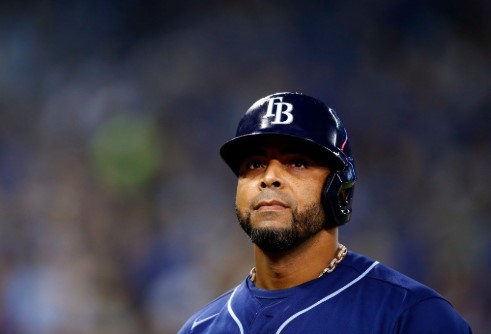Home Run: Baseball, a game of precision and skill, often provides us with moments of sheer athleticism that leave fans in awe. Among these electrifying moments, the home run stands out as one of the most thrilling spectacles in the sport. While a home run is generally considered impressive for its distance, there is another aspect that often gets overlooked: the sheer power behind the swing. The hardest hit home runs, those that are not only long but also come off the bat at blistering speeds, capture the imagination of fans and analysts alike.
In this article, we will explore the hardest hit home runs in baseball history, delving into the science behind these mammoth blasts, the players who achieved them, and the incredible feats of strength and technique required to hit the ball at such high velocities.
Understanding The Hardest Hit

Before we dive into specific home runs, it’s important to define what we mean by the “hardest hit” home run. Generally, the hardest-hit balls are measured by their exit velocity—the speed at which the ball leaves the bat after contact. The higher the exit velocity, the more forceful the hit.
Exit velocity is typically measured in miles per hour (mph). Modern technology, such as Statcast, has allowed analysts to measure exit velocity with incredible accuracy, enabling a deeper understanding of what makes a home run particularly impressive. For context, an average major league exit velocity for a home run is usually around 105 mph, with anything above 110 mph considered exceptionally powerful.
The Hardest Hit In MLB History
Several home runs throughout baseball history have been recorded with incredible exit velocities, some of which defy belief in terms of raw power. Let’s look at some of the hardest-hit ever, based on their exit velocity.
| Player | Team | Date | Exit Velocity (mph) | Distance (ft) | Notable Fact |
|---|---|---|---|---|---|
| Giancarlo Stanton | Miami Marlins | 2017 | 121.7 | 504 | One of the longest and hardest-hit home runs ever recorded. |
| Aaron Judge | New York Yankees | 2017 | 119.8 | 495 | A monster shot that went deep into the stands at Yankee Stadium. |
| Mark McGwire | St. Louis Cardinals | 1998 | 118.9 | 545 | One of the most famous home runs of the 1998 season. |
| Carlos Gonzalez | Colorado Rockies | 2015 | 117.2 | 505 | A towering shot at Coors Field that displayed his raw power. |
| Nelson Cruz | Seattle Mariners | 2015 | 116.9 | 457 | A blast that cemented his reputation as one of the hardest hitters. |
| Javier Baez | Chicago Cubs | 2018 | 115.5 | 400 | Known for his quick hands, Baez hit one of the hardest balls of the season. |
Analysis Of The Hardest Hit

Giancarlo Stanton (121.7 mph, 504 ft)
On August 10, 2017, Giancarlo Stanton, known for his power, hit a home run that sent shockwaves through the baseball world. With an exit velocity of 121.7 mph and a distance of 504 feet, this blast is widely considered the hardest-hit home run ever recorded. Stanton’s combination of strength, technique, and timing resulted in one of the most remarkable home runs in modern baseball history.

Aaron Judge (119.8 mph, 495 ft)
Aaron Judge, standing 6’7” and weighing 282 pounds, is a physical specimen. His home run on June 11, 2017, against the Baltimore Orioles left the crowd in awe as the ball left his bat at 119.8 mph, traveling 495 feet. Judge’s massive frame and impeccable swing mechanics allowed him to generate incredible power, making this one of the hardest-hit home runs in MLB history.

Mark McGwire (118.9 mph, 545 ft)
Mark McGwire’s 1998 season was legendary for his power, and one particular home run against the St. Louis Cardinals stands out. With an exit velocity of 118.9 mph, the ball traveled 545 feet, a distance that was rare even in the expansive confines of Busch Stadium. McGwire’s famous 1998 home run record chase was marked by his astonishing strength, and this home run exemplified that power.

Carlos Gonzalez (117.2 mph, 505 ft)
In 2015, Carlos Gonzalez of the Colorado Rockies showed off his raw power in a game at Coors Field, a park known for its high altitude and hitter-friendly conditions. His home run, which reached 117.2 mph, traveled an impressive 505 feet, one of the longest and hardest-hit balls of that season. Gonzalez’s ability to hit the ball with such velocity and distance made this a signature moment in his career.

Nelson Cruz (116.9 mph, 457 ft)
On June 29, 2015, Nelson Cruz of the Seattle Mariners blasted a ball at 116.9 mph that sailed 457 feet. Known for his consistent power-hitting, Cruz’s monstrous home run is a testament to his ability to generate such force with every swing. His strength and technique make him one of the most feared sluggers of his era.

Javier Baez (115.5 mph, 400 ft)
Javier Baez, known for his quick hands and electric bat speed, hit one of the hardest home runs of the 2018 season with an exit velocity of 115.5 mph. Baez’s home run against the St. Louis Cardinals showcased not only his raw power but also his ability to drive the ball at high speeds, making him one of the hardest hitters despite being shorter in stature than most sluggers.
The Science Behind The Hardest Hit
While the above examples highlight some of the hardest-hit in terms of exit velocity, what makes these blasts so powerful? To understand this, we must look into the biomechanics of a baseball swing and the role of physics in generating power.
- Bat Speed
The key to hitting the hardest home runs lies in bat speed. A faster swing generates more force, which, when combined with the batter’s power and proper mechanics, results in a higher exit velocity. Players like Giancarlo Stanton and Aaron Judge, who possess exceptional bat speed, can generate tremendous force at contact. - Body Mechanics and Strength
A batter’s physical attributes, including their upper body strength and core stability, play a crucial role in the power of their swing. Power hitters often have strong forearms, wrists, and shoulders, which enable them to exert force on the ball at the point of contact. - Launch Angle
In modern baseball, a higher launch angle often correlates with the distance and success of a home run. Players adjust their swings to produce optimal launch angles, allowing them to hit the ball not only hard but at the perfect trajectory to maximize distance. - Ball Compression
The baseball itself plays a role in the power of a hit. Modern balls are tightly wound and made with a durable outer layer, allowing them to compress and rebound off the bat with maximum energy. The quality of the bat and the ball also factors into the exit velocity.
The Impact Of Ballparks On Hard-Hitting
While exit velocity is a key factor in determining the hardest-hit home run, the ballpark in which the home run is hit can significantly affect the distance the ball travels. Some ballparks, such as Coors Field in Colorado, are known for their high altitude, which makes them more conducive to long-distance home runs. Others, like Yankee Stadium, are known for their short porches in the outfield, which can benefit power hitters who specialize in pulling the ball.
Notable Players Who Hit The Hardest
| Player | Known For | Top Home Run Exit Velocity | Top Home Run Distance |
|---|---|---|---|
| Giancarlo Stanton | Power, bat speed, strength | 121.7 mph | 504 feet |
| Aaron Judge | Physical dominance, swing mechanics | 119.8 mph | 495 feet |
| Mark McGwire | Historic power, record-breaking seasons | 118.9 mph | 545 feet |
| Nelson Cruz | Consistency, raw power | 116.9 mph | 457 feet |
| Carlos Gonzalez | Strength and raw power | 117.2 mph | 505 feet |
Conclusion
The hardest-hit home runs in baseball are a combination of sheer strength, perfect technique, and impeccable timing. Players like Giancarlo Stanton, Aaron Judge, and Mark McGwire have demonstrated that the raw power required to generate such incredible exit velocities is a rare skill that few possess. The science behind hitting, including bat speed, body mechanics, and ball compression, plays a critical role in these monumental blasts, which are among the most thrilling moments in baseball.

As baseball continues to evolve, we can expect more record-breaking home runs that showcase the power and athleticism of the game’s biggest hitters. But for now, the hardest-hit home runs in history serve as a reminder of the sheer force behind the game’s most electrifying moments.

